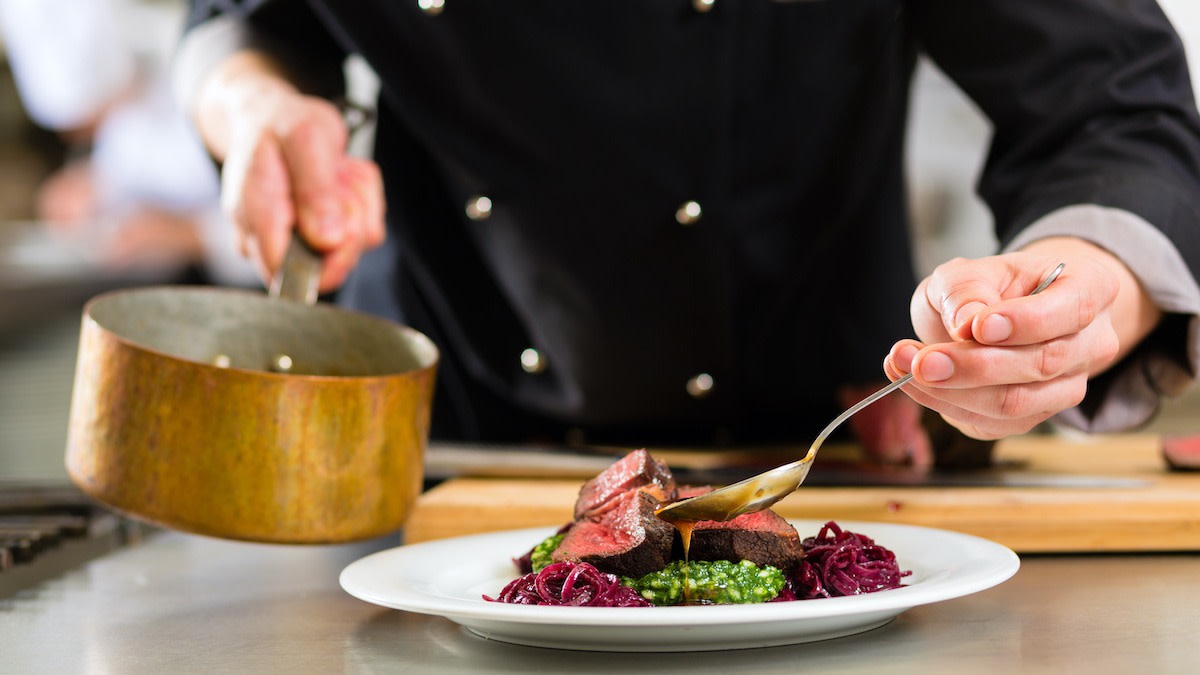What Is a Stagiaire? How to Prepare to Stage in a Restaurant
Written by MasterClass
Last updated: Jun 7, 2021 • 2 min read
If you aspire to be a head chef, or simply want to learn more about careers in a professional kitchen, a stage is a great place to start.
Learn From the Best
What Is a Stage?
Stage (pronounced “stahj”) is the French word for internship. Stagiaire, in turn, means trainee or intern. In France there are stages for every line of work, but around the world, the word stage has come to mean a kitchen internship; this is reflective of France’s global influence on how kitchens are run.
2 Types of Kitchen Stages
In restaurants, there are two types of stages, which are generally unpaid:
- 1. Internship: An inexperienced cook might serve as a stagiaire at a restaurant for a few months or longer, with the hopes of earning a permanent paid position in a kitchen. They might be assigned to prepare vegetables and sweep the floor in exchange for education and mentorship.
- 2. Training: A more experienced cook or chef might stage at a restaurant for at least one day to learn techniques to bring back to their own kitchen. These stagiaires are often entrusted with more refined tasks, like plating a dish. Sometimes a more experienced cook will stage at a restaurant as a tryout for a job.
How to Apply and Prepare for a Stage
A stage is regarded as a prerequisite for a job on a professional team in a kitchen. Consider these four ways to prepare for the application process:
- Acquire documentation: If you want to stage in Paris, London, or New York City, research the local requirements for stagiaire programs. In many parts of Europe, the U.K., and the U.S., stagiaires are required to receive educational credit in lieu of—or in addition to—wages.
- Do your research: Before making a long-term commitment to a restaurant, find out if it’s the right spot for you. Well-known eateries look great on a CV, but you might get more personal attention at a smaller restaurant. A well-staffed restaurant, regardless of size or reputation, will present opportunities for expanding your skill set. An understaffed operation might rely on the labor of stagiaires for menial tasks, such as chopping carrots and potatoes.
- Network: Most kitchens don’t advertise for stage positions, so you’ll have to seek it out. An introduction from a friend, family member, or acquaintance is a great place to start, but you can also drop by a restaurant in person or reach out via social media. In your letter of introduction, be sure to explain what drew you to this restaurant in particular, in addition to listing your qualifications.
- Learn: Even if your kitchen doesn’t follow a strict brigade, it’s a good idea to learn about Escoffier’s brigade de cuisine, which is a system of hierarchy in the service industry. Learn as much as possible about your new team—from sous chef to pastry chef—so that you have a sense of everyone’s role and responsibilities before your first day.
Mise En Place
To perfect the mother sauces and make French cuisine at home, you must master essential cooking techniques. Discover Chef Thomas Keller’s approach to setting up a home kitchen and sourcing quality ingredients like fish and clams when you sign up for the MasterClass Annual Membership.
